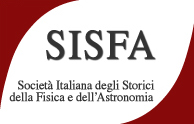Speaker
Description
This paper analyzes the development of the expression machina mundi during the Renaissance, highlighting the connection between ancient cosmological theories and the modern mechanistic view of the universe. The main theme focuses on the consideration of both Cosmos and Machina Mundi as universal ordering principles, aimed at seeking—or conferring—harmony, uniformity, and coherence upon the entities that constitute the universe. Beginning with the earliest cosmological models, the first part of the paper explores the underlying need for order across various theories. The theories of Plato and Aristotle, often blended and revised, form the foundation for the development of the concept of nature in both the Medieval and Modern periods. Considering several early modern authors, I argue that the Scientific Revolution is difficult to separate from the broader context of the rediscovery of classical thought and the renewed emphasis on human rational potential. In the second part, I attempt to frame the idea of machina mundi from its earliest Latin attestations through Renaissance and Modern thinkers, illustrating its connection to Greek cosmological theories, such as Neoplatonism and atomism. Special attention is given to the paradigm shifts and evolving perspectives that allowed the emergence and establishment of the machine metaphor.
1. General introduction: the Cosmos of the ancients and Medieval
Machina Mundi
2. The rediscovery of the classics in Cusanus and Copernicus
3. Galileo and the Machina Mundi: between organic and mechanical metaphor
4. Conclusion

